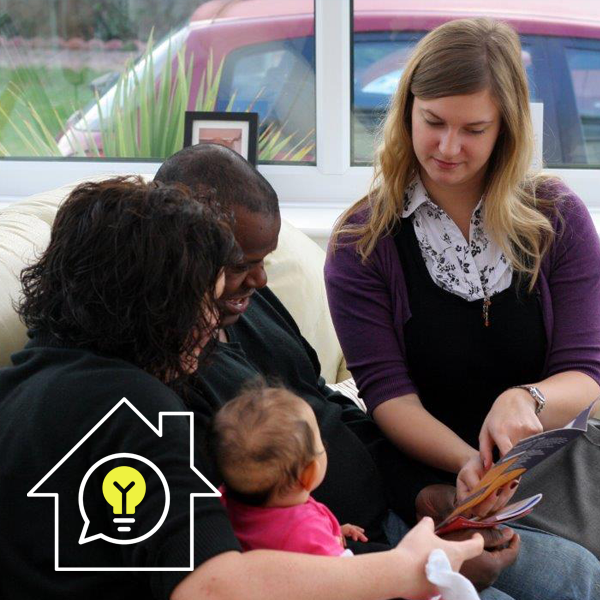
Supported E-Learning
Delivering High Quality Domestic Energy Advice: A Practical Guide
Reducing a home’s energy requirements is an effective way of helping those in fuel poverty, and many different organisations are now providing advice on how to do this.
This course is relevant for any frontline staff who engage with or support low income and vulnerable consumers on energy efficiency improvements.
Course audience
This course is relevant for any frontline staff who engage with or support low income and vulnerable consumers on energy efficiency improvements.
PLEASE NOTE: this course will focus on how to deliver advice, a prior knowledge of energy efficiency will be required and can be gained from other courses.
Course aim
To help advisers to provide energy related advice and guidance that is consistent and accurate and which aims to meet customer’s needs. To demonstrate how joined-up advice services can deliver outcomes that solve problems in a more holistic way.
Course objectives
Explain:
- How to identify potentially vulnerable householders
- The EAST framework to be used when giving energy-related advice
- How to give effective advice in a safe and timely manner
- The importance of confidentiality and safeguarding
- Best practice for a typical energy advice case
Course content
- Why is good energy advice important
- Risk factors leading to vulnerability
- Using triggers or red flags to identify a vulnerable situation/ customer
- Changing energy related behaviour using the EAST framework
- Safe work practices
- Client confidentiality GDPR
- The importance of well devised organisation policies
Please note that the course content will focus mainly on England and Wales. If you are based in Northern Ireland or Scotland and interested in this course, please contact lynsey.thompson@nea.org.uk before booking so we can discuss the main differences.
Delivery method
E-Learning
How will the e-learning work
E-Learning is self led giving learners the flexibility to study as and when they wish.
Once registered, learners will have access to the course for four weeks and be able to study online at a time and location that is convenient to them.
A handout booklet covering the relevant topics will also be available to download and keep.
Tutor support
Tutor support will be available upon request. This is usually done via telephone / video call.
Suggested study time
This course will take approximately 2 hours to complete however each learner is different and e-learning offers the flexibility to study at your own pace. Learners will have access to the course for four weeks from their selected start date.
Fees
INDIVIDUAL PLACES
*FUNDED PLACES are available to non-commercial organisations based in England and Wales (such as local authorities, housing associations, advice agencies etc). Learners must also be frontline staff or volunteers that encounter and provide advice to those in or at risk of fuel poverty. This applies to webinar and E-Learning only.
For those not eligible for a funded place, fees are as follows:
| NEA Members | Non-Members | |
| NOT FOR PROFIT ORGANISATIONS | £65 + VAT | £75 + VAT |
| COMMERCIAL ORGANISATIONS | £80 + VAT | £90 + VAT |
GROUP / ORGANISATION BOOKINGS
We also offer ‘organisational licences’ to organisations that have a large number of staff to train. This will provide access for 6 months or 12 months for an unlimited number of learners.
This type of licence will provide a tailored version of the course specifically for the organisation.
Included within the licence fee are two tailored slides to add information that is specific to your organisation. This may be information on local schemes, contact details etc. Additional tailored slides can be purchased upon request.
The organisation can appoint an admin person who will be able to access reports on learner activity.
Please note that the organisation licence option is not funded, for further details, costs and terms please contact trainingadmin@nea.org.uk


